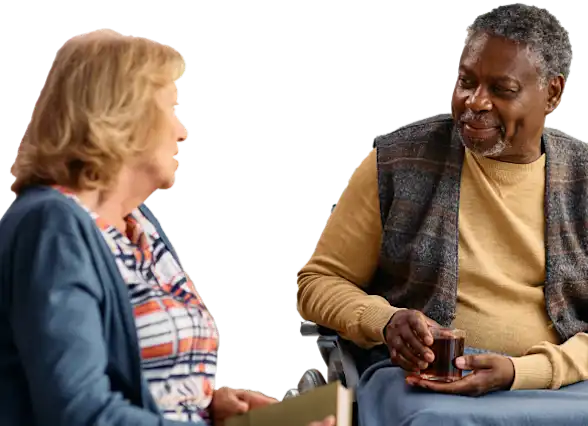Understanding Depression and Knowing When to Get Help
Depression can show up as sadness, numbness, anger, or exhaustion, and may include feelings of worthlessness or disconnection. Warning signs of serious risk include talk of death, withdrawal, or giving away belongings. Support is available through crisis lines and identity-affirming resources. Reaching out for help is an act of strength, not weakness.
Get insurance benefits, legal documents, and medical records in one place

🌧️ What Does Depression Feel Like?
Depression shows up differently for everyone. Some people feel hopeless or sad. Others feel numb, disconnected, or constantly tired. Some people feel angry, irritable, or like they’re failing at life — even when they’re not.
Signs of depression might include:
Feeling sad, empty, or hopeless most of the time
Loss of interest in things you usually enjoy
Sleeping too much or too little
Feeling worthless or like a burden
Having trouble focusing or making decisions
Thoughts like “What’s the point?” or “People would be better off without me.”
You don’t have to have all of these to be struggling — and even if they come and go, they still matter.
⚠️ When to Be Concerned About Safety
Sometimes depression comes with thoughts about death or suicide. That can be incredibly scary, especially if you’ve never felt that way before — or if someone you care about says something that worries you.
Here are some signs that someone may be in danger and could use immediate support:
Talking about wanting to die or not wanting to be here
Withdrawing completely from friends or family
Saying they feel like a burden or that life is meaningless
Giving away belongings or saying goodbye
Expressing calm after a period of deep pain (sometimes a sign they’ve made a decision)
If you're seeing or feeling any of this — pause. It matters. Help is available, and you don't have to manage this on your own.
🛑 What You Can Do (for Yourself or Someone Else)
You don’t need to have the perfect words. Just noticing and caring makes a difference.
If you're worried about yourself:
Reach out — even a text like “I’m having a really hard time right now” is enough
Call 988 or text HOME to 741741 to talk to someone trained to support you
If you feel unsafe and can’t keep yourself from harm, go to your nearest emergency room
If you’re worried about someone else:
Let them know you care: “I’ve noticed you don’t seem like yourself lately. Want to talk?”
Ask directly but gently: “Are you thinking about hurting yourself?” (Asking won’t plant the idea — it actually opens the door to safety)
Offer to sit with them, stay on the phone, or help them find support
If they are in immediate danger, don’t leave them alone. Call 911 or take them to an ER if safe.
🌱 If Emergency Services Aren’t Right for You
We recognize that for many people — especially BIPOC, queer, trans, disabled, or neurodivergent folks — traditional emergency systems may not feel safe or affirming.
Here are identity-centered options that offer trauma-informed, peer-based support:
Call BlackLine (for BIPOC folks): (800) 604-5841
Trans Lifeline: 877-565-8860 (won’t call 911 unless you ask)
Fireweed Collective Crisis Toolkit: fireweedcollective.org/crisis-toolkit
💬 A Note About Asking for Help
Needing help doesn’t mean you’re broken. It means you're human. Whether your pain is quiet or loud, constant or fleeting — it still matters. The bravest thing you can do might just be staying curious about what healing could look like.
You're not alone in this. And you don’t have to figure it all out at once.
Get more support and guidance on insurance benefits, medical records and legal forms.
Helpful brings together your insurance benefits, legal documents, and medical records in one personalized place — so you always know what you have, and never have to search again.

Technology for Health Tasks. Mental Health for the Tough Stuff.
Helpful connects your medical records, insurance, and caregiving tasks automatically. And when you need more than logistics, a therapist is here to guide you.
In-Network and Covered
For Individuals, Couples and Families
HIPAA Compliant, Data Stays Private


Healthcare Tasks Simplified

From syncing records to spotting drug interactions, Helpful does the heavy lifting, turning complex health info into clear tasks and showing you benefits you can actually use, giving you clarity and control over your care.

In-Network Mental Health

Our licensed therapists are here to support you and your loved ones through stress, burnout, and life’s hardest moments, with an inclusive, compassionate approach that works with most insurance plans.

Create Legal Documents

Plan ahead by creating will, trusts, advance directives and more, that ensure your wishes are honored in the event you can’t speak for yourself -with Helpful guiding you every step of the way.